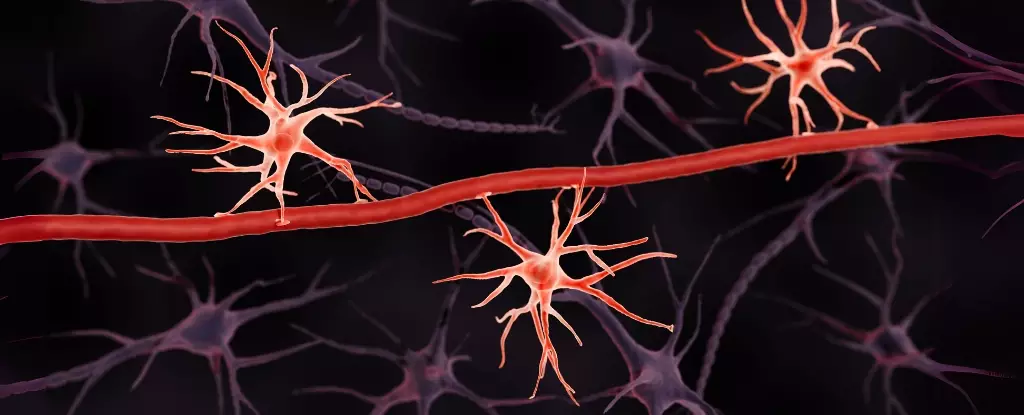Recent advancements in neuroscience have brought forth a groundbreaking drug that could redefine how we tackle neurodegenerative diseases like Alzheimer’s. The discovery, spearheaded by a team of researchers at Case Western Reserve University, highlights a novel approach in addressing brain inflammation, a critical factor in the progression of cognitive decline. Unlike conventional treatments that primarily target the accumulation of amyloid plaques, the new drug focuses on mitigating inflammation through an immune protein known as 15-PGDH. This represents a paradigm shift in Alzheimer’s research, offering a glimmer of hope for patients who have long faced limited treatment options.
The Significance of the Blood-Brain Barrier
Central to this advancement is the blood-brain barrier (BBB), a protective layer that screens substances entering the brain from the bloodstream. A compromised BBB can pave the way for various neurodegenerative conditions, including Alzheimer’s disease. The current study has illustrated that the new drug successfully strengthens the integrity of the BBB in mice, acting as a shield against potentially harmful agents. The implications of this finding extend beyond simple protection; it may serve as a crucial early detection marker for dementia-related conditions, emphasizing the need for proactive approaches in managing brain health.
A Radical Departure from Traditional Treatment
This innovative therapy moves away from the prevailing treatment strategies that predominantly concentrate on amyloid removal. Researcher Sanford Markowitz points out that existing Alzheimer’s medications often come with significant side effects and limited effectiveness. The introduction of 15-PGDH inhibition signifies an essential step away from the one-dimensional approach of merely targeting amyloid plaque. Instead, it opens the door to a more holistic understanding of neurodegeneration. This is particularly crucial as the medical community grapples with rising dementia rates, which now account for nearly 10 million new cases globally each year.
Compelling Evidence from Research
The exploration of 15-PGDH’s role has yielded promising results in experimental models. The compound SW033291, designed to inhibit this immune enzyme, has demonstrated remarkable efficacy in preserving cognitive functions and preventing damage associated with traumatic brain injuries. Researchers have reported that mice treated with the drug showed no signs of neurodegeneration, and crucial cognitive abilities remained intact. These findings underscore the potential for developing new therapeutic avenues that deviate from conventional methods, thus improving the overall quality of life for aging populations.
Future Implications and Challenges
Despite the encouraging results, the road ahead is fraught with uncertainties. The transition from animal models to human applications often encounters a myriad of challenges, including variable responses and unforeseen side effects. Yet, the identification of 15-PGDH as a critical player in maintaining the blood-brain barrier’s integrity ignites optimism. As researchers continue to refine this approach, the potential to safeguard against neurodegenerative diseases grows, and the urgency to find effective treatments has never been more pronounced.


Leave a Reply